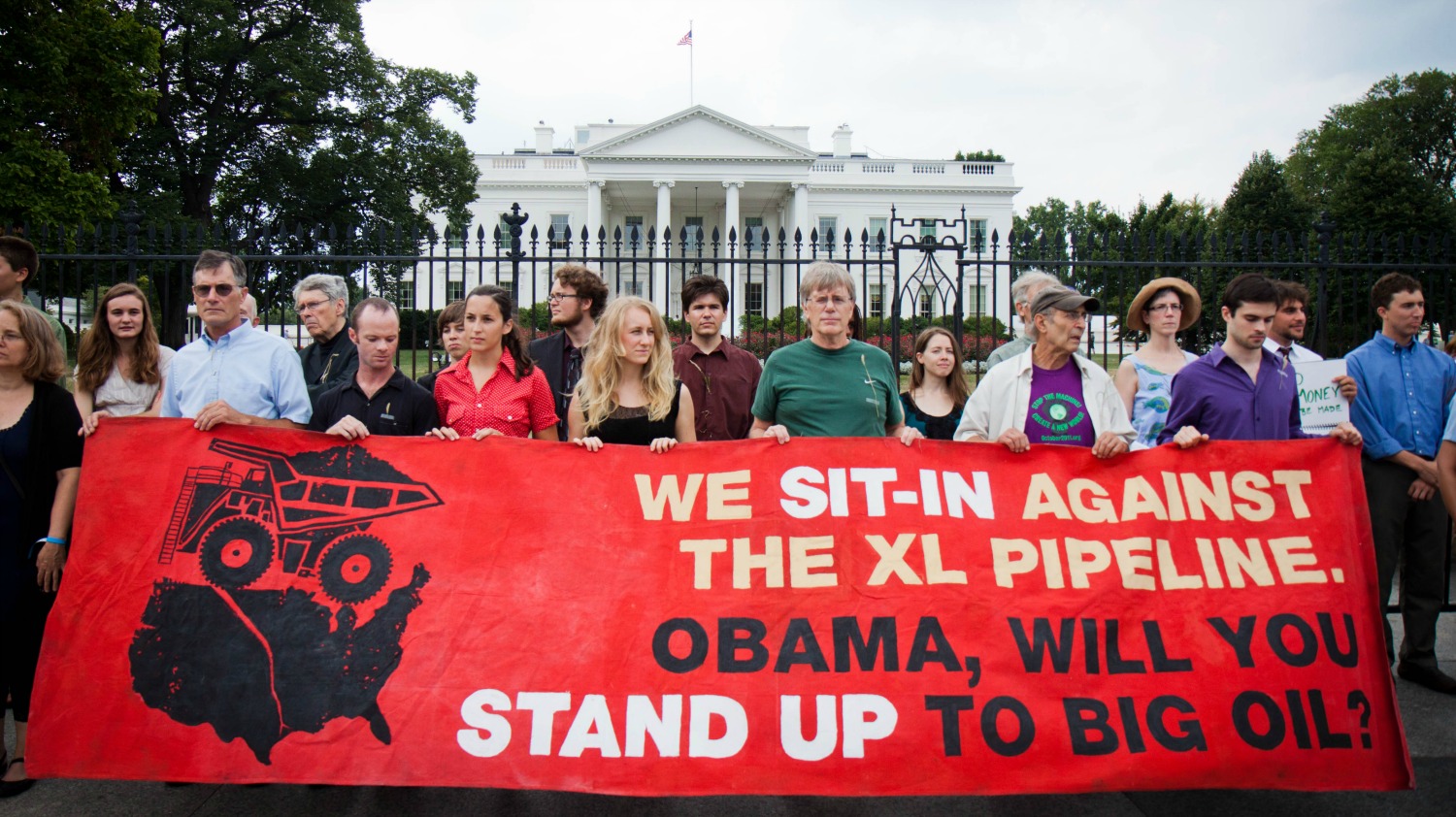
Ben PowlessA 2011 protest at the White House.
Life doesn’t stop just because the federal government has shut down. And sooner or later, President Obama will have to tell the world where he finally comes down on building or killing the Keystone XL pipeline.
While he continues to mull that important choice, the New York Times reports, a network of more than 150 former aides is pushing him to say “no.”
The Times tells the story of Elijah Zarlin, an aide during Obama’s first presidential campaign, who was later arrested during the 2011 Keystone protests outside the White House.
Mr. Zarlin, like other former aides, says his work is a reflection of his disappointment in the man he helped elect. Others, including most of the half-dozen top aides who now work as well-paid consultants for environmental groups, do not go that far but still say they are holding the president to the environmental policies he championed in his political campaigns. A handful of former Obama aides are working on the opposite side.
Pro-Keystone Obama alumni include former White House Communications Director Anita Dunn, who since 2011 has been advising TransCanada, the company that plans to build the pipeline.
More from the Times:
Although most environmentalists continue to think the president will approve the pipeline, Mr. Obama caught them off guard when he said in a speech at Georgetown University in June that the “national interest will be served only if this project does not significantly exacerbate the problem of carbon pollution.”…
In coming months both opponents and supporters plan to raise their volume as the State Department, which handles the permitting process for cross-border pipelines, moves closer to completing an environmental assessment. Secretary of State John Kerry will then make a recommendation to the president on whether the pipeline should be built. Mr. Obama will make the final decision.
Of course, we wouldn’t suggest making any plans around this timetable. If the government doesn’t reopen for business any time soon, there’s no guessing how much longer the pipeline approval process — along with anything else that requires a functioning bureaucracy — will take.


